For about 804,000 others, recent executive action by the president mean that their student debt will be wiped away. Since Biden has been president, he’s been looking for ways to ease this burden, an effort that’s been thwarted by Congressional Republicans and now the Supreme Court. What’s all this meant for borrowers who counted on this promised relief?
For many, it's no less than a financial catastrophe. They owe thousands that they thought would be forgiven by the government, and so they used their student loan money for other things -- like paying bills, covering credit card debt, or paying their rent. For some, it was a vacation or a new car.
On the Lean to the left podcast, Diane Gayeski, Ph,D. a recognized thought leader in trends impacting higher education, business, and the connection between both worlds, looks at those issues and offers some ideas about how the federal government could help students manage their debt -- without spending a ton of money.
Gayeski has some 50 years experience in education and knows what she's talking about. She is Professor of Strategic Communication at Ithaca College's Roy H. Park School of Communications where she served as Dean for 11 years.
Diane is an active consultant and speaker through Gayeski Analytics and works with clients in business, education and the government. She is the author of more than 100 articles and fourteen books, some of which are the principal texts used in undergraduate, graduate, and corporate curricula in corporate communication, human resources, and instructional systems design.
So, are student borrowers to blame for their own financial difficulties? Here are some questions we discussed with Prof. Gayeski:
Q. An Intelligent.com survey of 977 borrowers who qualified under Biden’s original plan for up to $20K in student loan relief shows that many borrowers were perhaps mistakenly confident about their loans being forgiven. Can you talk about some of the key results of that survey?
Q. Why do college students take out loans they know they can’t repay in the first place?
Q. Is it fair to be critical of those who used their loan money for things like rent, buying a house or a car, or paying off other debt?
Q. Why is it that more than half of those surveyed – 58 percent – say they are unprepared for payments to resume?
Q. What steps should borrowers who do not qualify for Biden’s latest relief plan take so they don’t get in trouble over their loans?
Q. You’re an adviser to leaders in business, education and the government. What reforms should be made in the student loan system so that it’s more fair for borrowers?
Q. Of course, the underlying problem is the high cost of education to begin with, right? Any thoughts about that?
This show is part of the Spreaker Prime Network, if you are interested in advertising on this podcast, contact us at https://www.spreaker.com/show/4719048/advertisement
Show Notes
This show is part of the Spreaker Prime Network, if you are interested in advertising on this podcast, contact us at https://www.spreaker.com/show/4719048/advertisement
Meanwhile, don’t forget to follow Lean to the Left at podcast.leantotheleft.net, and you can reach me at bob@leantotheleft.net. You can also follow us on social media…Facebook at The Lean to the Left Podcast. Twitter at LeantotheLeft1. YouTube at Lean to the Left, Instagram at BobGatty_leantotheleft, and TikTok at Lean to the Left.
If you would take a minute to give us a review, that would be great. There are lots of podcast links on our webpage, podcast.leantotheleft.net, where you’ll also find our upcoming interview schedule and links to all of our podcasts.
I hope you’ll come back on a regular basis and check out our interviews with guests on topics that I hope you find interesting, entertaining, and enlightening.
Our interview shows stream weekly on Mondays, and depending on what’s going on, also on Wednesdays, and most are produced as videos available on the Lean to the Left YouTube channel.
Also, let your friends know about this podcast and take a minute to subscribe yourself. Just go to podcast.leantotheleft.net to subscribe, check out the upcoming interview schedule, and listen to all of our episodes.
Remember, our goal is to be informative and entertaining as we comment on the latest developments in the news…you guessed it…with just a little lean to the left.
Show Transcript
Diane Gayeski: Addressing the Student Loan Crisis
[00:00:00] Bob Gatty: With the Supreme Court's rejection of President Biden's debt relief program, millions of borrowers will have to resume their payments in October. For about 804,000 others, recent executive action by the President means that their student loan debt will be wiped away.
[00:00:19] Since Biden's been president, he's been looking for ways to ease this burden, an effort that's been thwarted by Congressional Republicans, and now of course, the Supreme Court. What's all this meant for borrowers who counted on this promised relief?
[00:00:34] Stay with us.
[00:00:36] Our guest today, Diane Gayeski, PhD., is a recognized thought leader in trends impacting higher education, business, and the connection between both worlds. She's professor of Strategic Communication at Ithaca College's, Roy H. Park School of Communications, where she served as Dean for 11 years.
[00:00:59] Diane's an active consultant and speaker through Gayeski Analytics, and works with clients in business, education and the government. She's the author of more than a hundred articles and 14 books, some of which are the principle texts used in undergraduate, graduate, and corporate curricula in corporate communication, human resources, and instructional systems design.
[00:01:29] Diane, welcome to the Lean to the Left Podcast.
[00:01:32] Diane Gayeski: Nice to be here with you.
[00:01:35] Bob Gatty: I'm glad that you think so. We have a lot to talk about today. I saw an intelligent.com survey of 977 borrowers who qualified under Biden's original plan for up to $20,000 in student loan relief.
[00:01:55] And it shows that many borrowers were perhaps mistakenly confident about their loans being forgiven. Now can you talk about some of the key results of that survey?
[00:02:06] Diane Gayeski: Yeah, you're right. About three quarters of them were confident that they would not have to pay anything back or would have to pay very little back.
[00:02:14] a lot of them used that money. For other things already.
[00:02:22] Bob Gatty: Wait a minute, you mean they, they got their student loan money, but instead of using it to pay off their student loan, they used it to buy a car or pay their mortgage or whatever?
[00:02:36] Diane Gayeski: In, some cases, yes. Instead of paying back that money, they used that money instead of repaying the loan for other things. And, some of it was frivolous and a lot of it's not. Let's remember what the last couple of years have been like, especially for more recent borrowers. We've just come through the lockdown of the pandemic and things were quite uncertain.
[00:03:02] Many people who have taken out loans with the idea that they'd be getting great jobs and be able to pay them back quickly, found out that it was not quite that easy, especially once they got out and had to face the reality of the cost of housing and food and transportation. Some of them used the money for retail purchases and even things like vacations, a lot of them used it to pay off other loans. People used it for rent. They used it as a down payment on a house. They used it for childcare. And, so that tells you where we are in our country about it being affordable to live for most middle class people. Even those who have attained a college degree,
[00:03:54] Bob Gatty: yeah. Okay, so now they've taken out loans. Sometimes they did so knowing they really wouldn't be able to repay 'em.
[00:04:08] Diane Gayeski: I don't think they did know. I think in some cases more recently, people were confident that there would be some government initiative.
[00:04:17] Like the things that Biden has been talking about that would forgive those loans. In other cases, I think they didn't quite realize the impact once you start getting into things like interest. Yeah. And and let's remember that college students fall into two categories. If they're the typical 18 to 22 year olds, they mostly are being heavily guided by their families.
[00:04:45] And from what I've seen over my many decades of being in higher ed most young people aren't given too much of a choice about whether to go to college or how to go to college. It's either go to college or get out of the house and get a job, and they kinda look around and say what what can I do with my high school degree, and other than working maybe in retail or as a server in a restaurant, there's not much.
[00:05:13] So going to college looks like the thing to do. They're heavily encouraged to do that, and they're heavily encouraged to do whatever it takes to do that. And a lot of times they're not that informed. They're just trusting somebody else.
[00:05:28] Bob Gatty: Ah, okay. All right. So, they get into this and they're stuck.
[00:05:33] Then the economy goes into the toilet and they've got to deal with the reality of life. So they look at the one resource that they have, and that's their college loan money. And they're stuck and they have to pay bills and their car's broken down, they gotta go get another one. So on and so forth.
[00:05:53] Life happens and, so now they're stuck. But is it really fair that they, get these loans, they're for school, and regardless of their circumstances, they're now using this money for other stuff. Then it comes time to pay the school loan back and, they're looking for help so they don't have to do it.
[00:06:14] Now, is that really
[00:06:14] fair?
[00:06:15] Diane Gayeski: who knows what's fair, right? Yeah. A lot of people who didn't take those opportunities for loans and, didn't go to college, think that it's not fair. Or a lot of people who sacrificed a lot did live at home and didn't get a car and paid off those loans think it's not fair. However I think what's happened is two things. One is that for, many years now, the idea of loans being forgiven has been out there. Okay. And so they're thinking that's gonna happen. I see. Okay. So, that encouraged them to go ahead and do it. And then secondly, I think that they're not sure what it is they're signing and they're not sure of the impact of those loans.
[00:07:02] And they get into it and they get into college and pursue college, which is a good thing. But then don't quite realize what that debt is. And I think just like credit card debt, it's not the principle, it's the interest. And, I think in the rush of getting into college and deciding whether to go to college and how to go to college, people, often their families, and certainly, if it's a traditional student, 17 and 18 year olds don't understand this. Then let's think about the other large group of students who are pursuing student loans, and that's the adult learner and they are trying to hold down a job and raise a family and and, deal with all the things that one does. Struggling to both further your career if you don't already have a college degree and face life of families, kids, sicknesses, whatever, right?
[00:07:58] And sure they're gonna use the money for rent or childcare because that's the fact of life, right? So they're, trying to juggle a lot of things. They're trying to bring themselves up out of the situation that they're in. But it's like robbing Peter to pay Paul.
[00:08:14] Bob Gatty: Yeah. So, then they're stuck.
[00:08:17] The politicians are holding out hope. It's, a good election time promise to say, Hey, College students we'll come to your rescue here, just vote for me. And then they get into office and, then the Supreme Court says no, you can't really do that. And of course there's also politics that have played its ugly hand with the Supreme Court too.
[00:08:47] But we don't need to really go there. But the fact of the matter is the Supreme Court did say, no, you can't do this. So right. Then Biden's coming up with this other plan, which is gonna help a small percentage of those who need the help. So what should these people do now? They're stuck in this place where they've got this to pay.
[00:09:13] The government says you have to do it. The interest keeps adding up so what should they do?
[00:09:20] Diane Gayeski: It's not, easy choices, right? I think it's the, choices that face a lot of people in the middle class now about can you live the life that we expect for people with college degrees who were holding down.
[00:09:38] Jobs that require that sort of thing. With the kind of wages that they're getting and the cost of living. And I think what you're seeing is that many people in their thirties are delaying getting married, they're delaying having kids. Most, of them can't afford to have a house. Many of them are living like college students again, with roommates or back at home in the basement with mom and dad.
[00:10:05] Yeah. And that that may be what they're faced with.
[00:10:09] Bob Gatty: Wow. There's no other, there are no other outs. They can refinance right? Sometimes
[00:10:15] Diane Gayeski: yeah. They can sometimes do that. I think. I think the question is, What do we do to make the system better? Because I, the people who have already gotten in these situations, we don't know what kinds of bailouts or forgiveness or plans there will be.
[00:10:31] I, would assume that not only Biden, but others will come up with either national or state programs, or that some of the lenders will come up with some kinds of refinancing. And, people will deal with that, but then how do we move forward? How do we not perpetuate the cycle? And, I think that's, a serious question. I think one of the things is that people are rethinking the value of a college education. Is I think the sometimes had inflated hopes about the kind of job that was just waiting for them. When they graduated. So I think a lot of people are rethinking it.
[00:11:13] Or, they're doing maybe a two year degree or going more slowly at it. Yeah. I think also colleges and universities are trying to do a better job at financial education, but those staffs I see them, they're my colleagues in financial aid. You've got literally thousands of families trying to work out a deal of where they can go to college.
[00:11:38] And there's not only loans, but almost every private college has what we call a discount rate or scholarships, right? It's, really just discounted tuition. And in most private colleges, that's more than 50%. You, look at the sticker price of being 70,000, almost nobody pays 70,000, but they may be paying 35, which is still a lot.
[00:12:07] But these, people who are dealing with families who are coming back and trying to strike deals and figure out whether they can make it work. They're so busy, they don't have time to be your financial advisor. Sure. And if the parents don't have the financial literacy or if people are out on their own and and, trying to raise their own families may not have the kind of advice that they need.
[00:12:30] We need to figure out how to make it more clear. I think what I also see is that a lot of people say, just get going, get into college for that first year, and then you can figure it out. Now, it's true that for many people if they get in that first year and they do a good job, they may qualify for some pretty good on campus jobs.
[00:12:54] They can become teaching assistants and things. There may be better jobs on campus. Sometimes they qualify for scholarships. For when once they get a little bit of a track record, so that might happen. But I also see the opposite in that sometimes colleges will give people a scholarship, but it's not for all four years.
[00:13:18] It's just for that first year. And they don't recognize it. 'em in,
[00:13:23] Bob Gatty: they lure 'em in with the first year covered. And then, oh, you're on your own pal.
[00:13:32] Diane Gayeski: And then once you've invested a year right. And you know you have friends and you're doing well, and you may be really into this field, pretty heartbreaking to say now I can't go back.
[00:13:43] You find a way to do it.
[00:13:45] Bob Gatty: So you borrow the money and now you're stuck. Yeah. Yeah. While you were talking, it occurred to me we've, got a situation in the economy today where, especially since the pandemic and people got used to working at home and so many people found ways to earn a living by doing things on the internet.
[00:14:06] I'm wondering if, you think that forward thinking businesses might, have some kind of. Repayment program help for prospective employees that they wanna bring in.
[00:14:23] Diane Gayeski: Yeah. I think that certainly would be a very attractive offer, right? Yeah. If you're in a position where you're really trying to get employees, you look at nursing and areas like that where there's such staff shortages, that would be a very attractive benefit. Many employers are paying for college. Yeah. And so some people are going that route as well.
[00:14:46] Bob Gatty: Yeah. Yeah. Okay. The underlying problem, of course is the high cost of education, right?
[00:14:55] What can be done about that? Yeah you're a, you're an education consultant, right? You work with businesses?
[00:15:02] Diane Gayeski: I work with businesses. I've been in higher ed I've been a professor. Been a dean. Yeah. I'm, in on I'm at a highly, selective private school with a high tuition, and I see where the money goes.
[00:15:17] It's not to professors like me. Yeah. In fact, most of my students, Make more than I do after a couple of years. It's not even into college administrators, I mean to professors. The president's salaries look great, but to the rest of the world they don't. But I think colleges and universities are being asked to do more and more.
[00:15:42] So if you look at when most universities were started we're on the other hill from Cornell University and Back, at Cornell over in College Town, a little area by campus there are, you'll see big old rooming houses and when people came to Cornell in the old days, in the late 18 hundreds, they'd come and they, would stay in a room somewhere in somebody's boarding house.
[00:16:10] They'd go to school and that was it. The college didn't provide much else. They might have been a. A football team or a basketball team, but there was not a whole lot else. Yeah. There's not dorms and cafeterias and entertainment and career centers and all kinds of things. You just, you found your way to your lectures.
[00:16:28] You went to ca class and that was it. But now if you look at what people are looking for in a college we're like a, we're a city. They were, that were expected to have very attractive residential offerings ,food like a hotel. The counseling and healthcare services, which are very much needed.
[00:16:49] But that burden has been put on colleges, burden of career services has been put on us. That was never the job of universities. It was our job to train people not to not to counsel them in their careers. Sure. So you see that more and more is being piled on us and so Sure. It's expensive.
[00:17:10] Yeah.
[00:17:11] Bob Gatty: Okay. All right. Got any more thought, any thoughts about what needs to happen going forward?
[00:17:17] Diane Gayeski: I'm hoping that there will be some consortia put together that will provide solid financial education to prospective college students and their families. Colleges are doing a better job at that on their websites.
[00:17:38] There are a lot of better calculators and better information. Still not great, and every college has their own. I think it would be great. Maybe this should be provided in high school as well but, to have some kind of site that very clearly walks people through the steps of what it means to get a college education and how to finance that.
[00:18:03] Okay. And, do it in a very unbiased way. It shouldn't be biased towards pushing you to get into college or pushing you to take loans just to have a, very clear and straightforward presentation of what all this is about. Then at least I think people are better informed. What bothers me is I think people have gotten into this without the information that they need.
[00:18:25] Yeah. You have a consulting company, right? Yep. What's the name of your consulting company?
[00:18:32] Eski Analytics.
[00:18:34] Bob Gatty: And what is it that Eski Analytics does?
[00:18:39] Diane Gayeski: I help organizations communicate better with their various constituencies. Okay. So I will help them come up with communication strategies. Okay.
[00:18:50] Bob Gatty: All right.
[00:18:52] Some of the things that you were talking about it, are any services being considered in your company to maybe help with some of that
[00:19:04] Diane Gayeski: My company is really me. Okay. Okay. So
[00:19:09] Bob Gatty: I, know about that.
[00:19:11] Diane Gayeski: Yes. I have ideas as to what a better solution might look like.
[00:19:15] But I, think there, there are a number of providers that could come up with something like that, but I think it would be great if Biden would put some money towards not only helping people forgive their loans or provide scholarships, but also provide some really solid education that's very accessible.
[00:19:38] It wouldn't take much to produce it, but I think that would be a huge help.
[00:19:44] Bob Gatty: Really wouldn't that have to happen with legislation through Congress?
[00:19:49] Diane Gayeski: I don't think so. Object? I think with relatively little amount of money some kind of digital resource could be provided by the government.
[00:20:00] It could be bid out to contractors and it could be something that hangs off a government website and is linked to by every college and university and people could quickly get to it. But it's an kind of an unbiased source and updated about 1 0 1 kind of financing college for dummies.
[00:20:19] Bob Gatty: You know what, that makes a hell of a lot of sense. That's probably what the problem is. It makes too much sense. It seems like a simple solution, one that wouldn't be very expensive to do, given on balance, right? Yeah, Okay. All right. I don't have anything more.
[00:20:37] Have you got anything more?
[00:20:38] Diane Gayeski: I think that's it. I hope this just helps to get the word out.
[00:20:41] Bob Gatty: Yeah. I have three or four listeners we'll let them know. Couple people watch it on YouTube, we'll let them know.
[00:20:52] Diane Gayeski: Good.
[00:20:52] Bob Gatty: Anyway, Diane's been great. I enjoyed talking to you a lot and I always like talking to communications people and you're a hell of a lot smarter than I am cuz you're, look at what you've done. You go, how many books have you written?
[00:21:06] Diane Gayeski: 14.
[00:21:07] Bob Gatty: 14. I wrote one,
[00:21:10] Diane Gayeski: but that's what academics do.
[00:21:11] Bob Gatty: That's what academics do.
[00:21:13] Okay. Yeah, I wrote one, I had about, I sold about 10. No, I was more than that. But anyhow, it was called Hijacked Nation, Donald Trump's attack on America's Greatness. And it was a bunch of blogs from my blog site, which used to be called Not Fake News. Anyway It's still on Amazon. Anybody interested?
[00:21:35] Go for it. Okay. All right. All right, Diane, listen, pleasure talking to you. I really, appreciate it. Enjoyed talking to you.
[00:21:44] Diane Gayeski: Okay, Bob. Thanks for the invitation.
Listen On
Also In Season 3
-
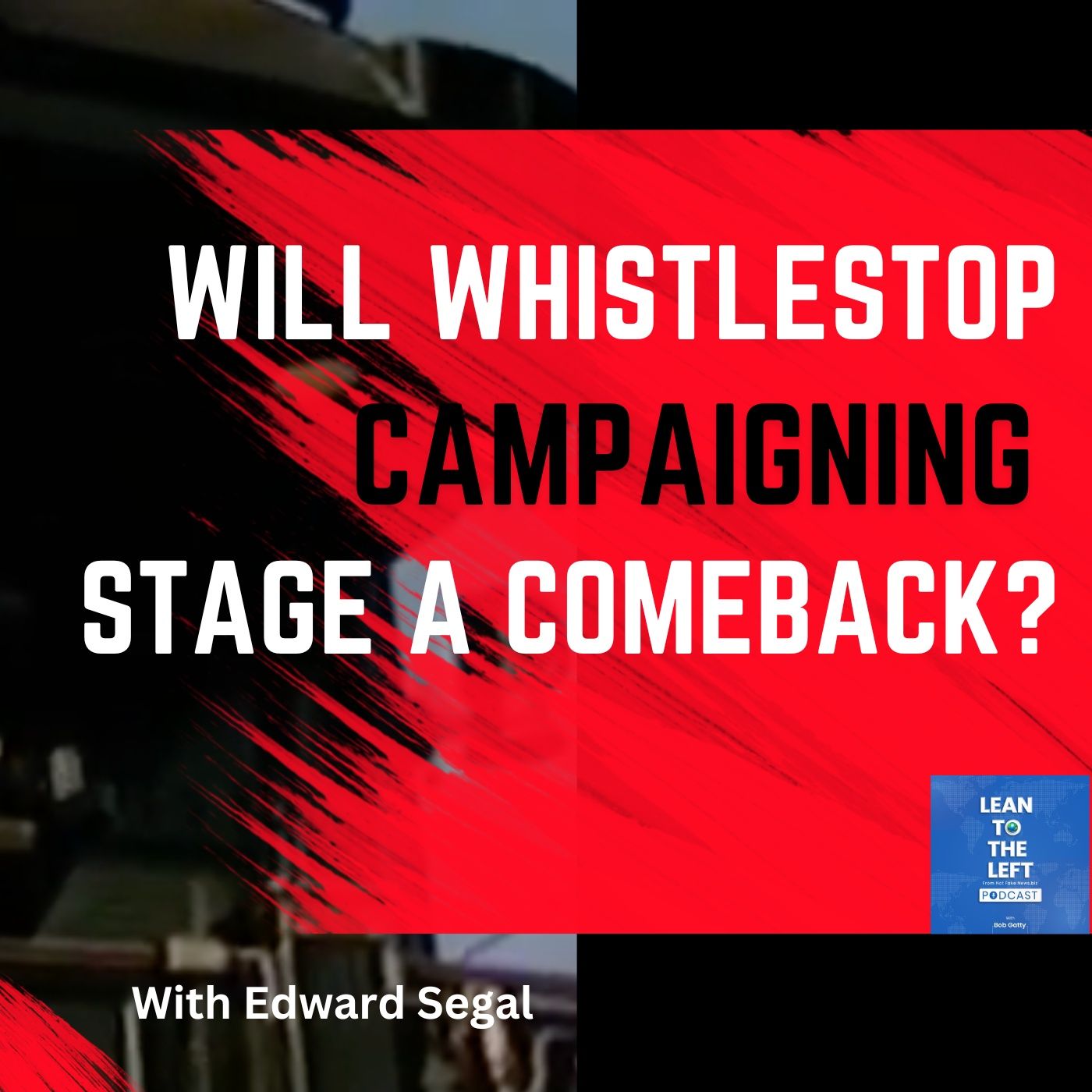
Riding the Rails to Victory
In 1836, William Henry Harrison was the first presidential candidate to campaign -
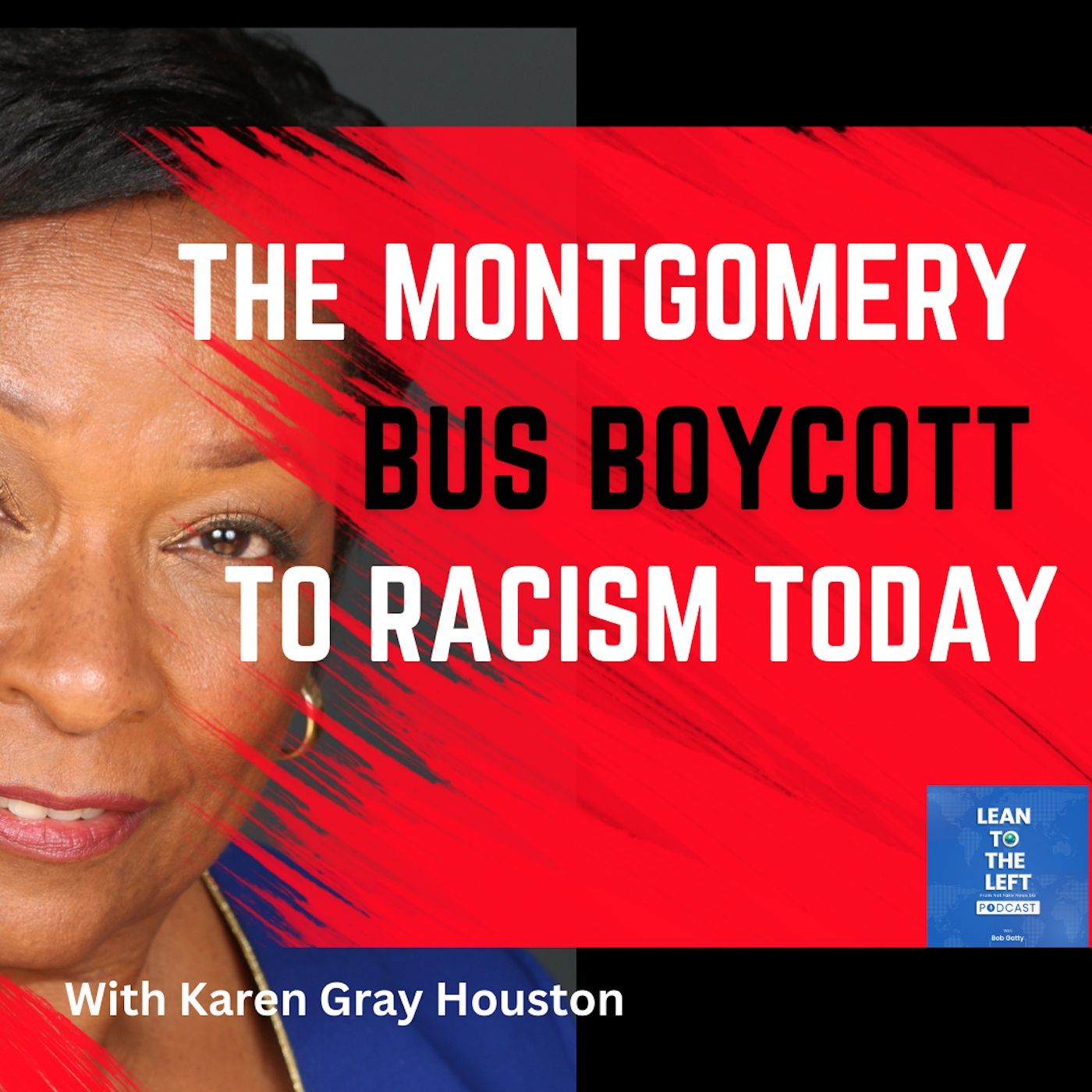
Has There Been Progress on Racism Since the Montgomery Bus Boycott?
It was 73 years ago in 1950 that a Black man named Hillard Brooks was shot and k -
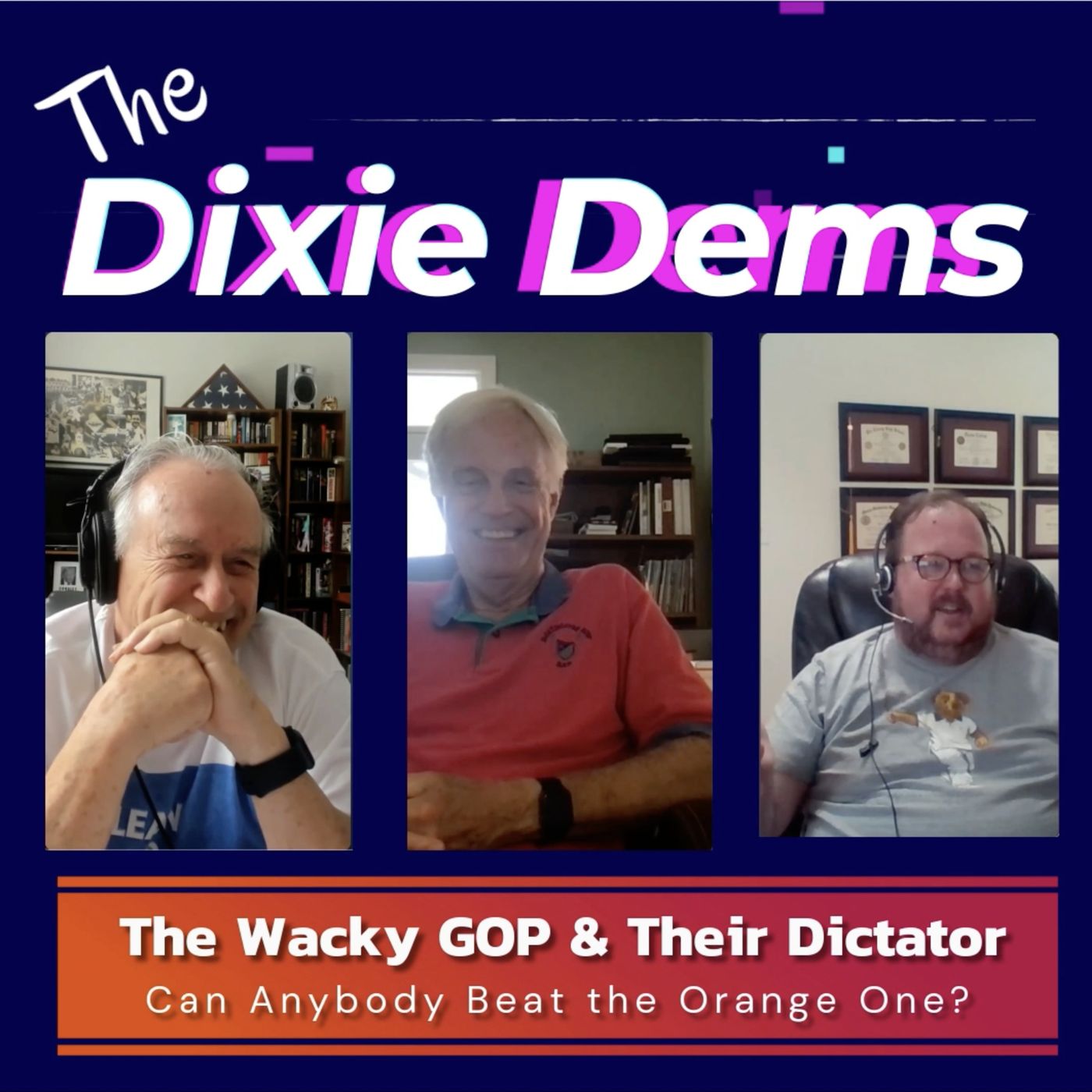
Dixie Dems: The Wacky GOP & Their Dictator
Despite the fact that Donald Trump is facing multiple court cases, including cri -
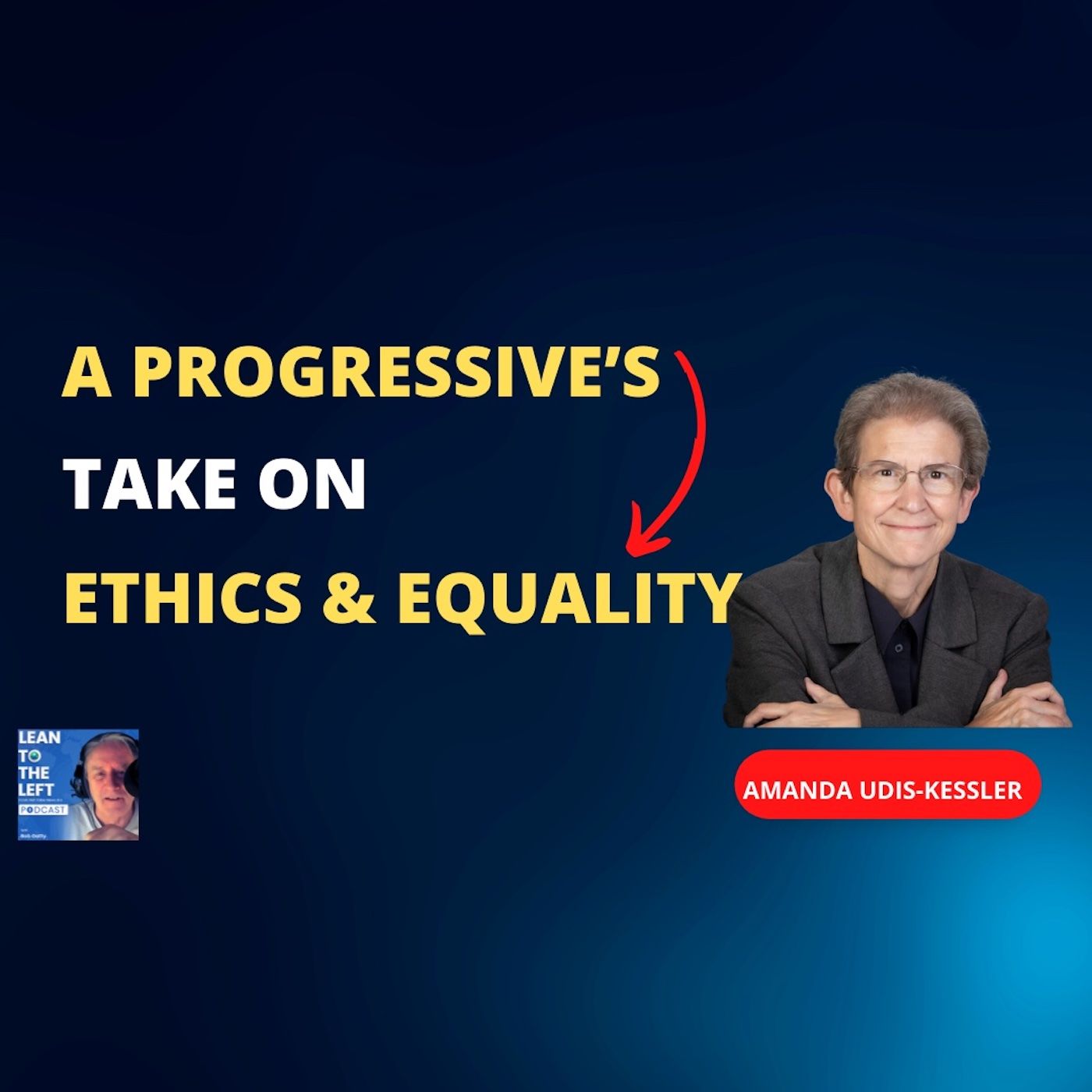
Amanda Kessler-A Progressive's Take on Ethics & Equality
Welcome to the Lean to the Left podcast, where we explore progressive politics a

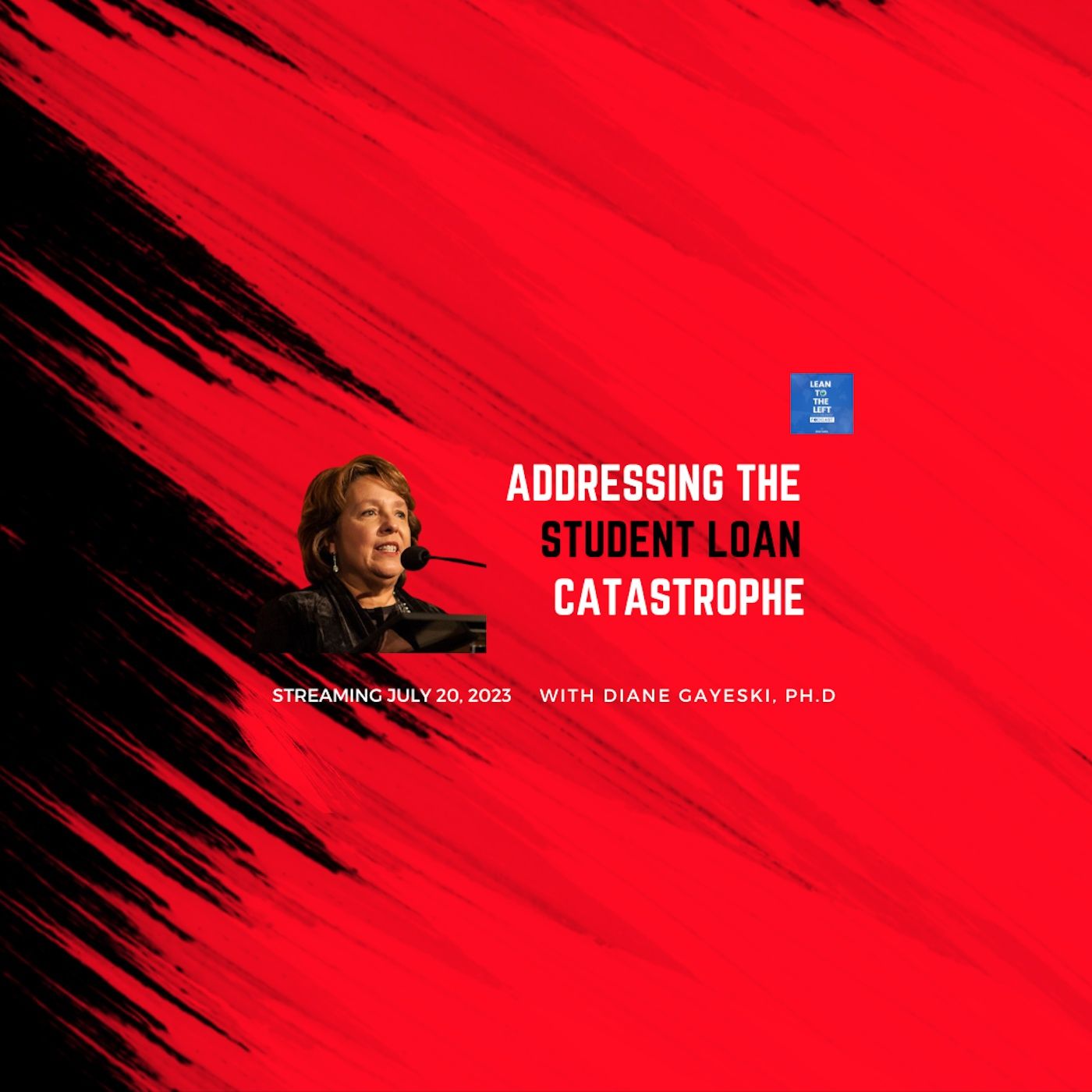
Comments & Upvotes